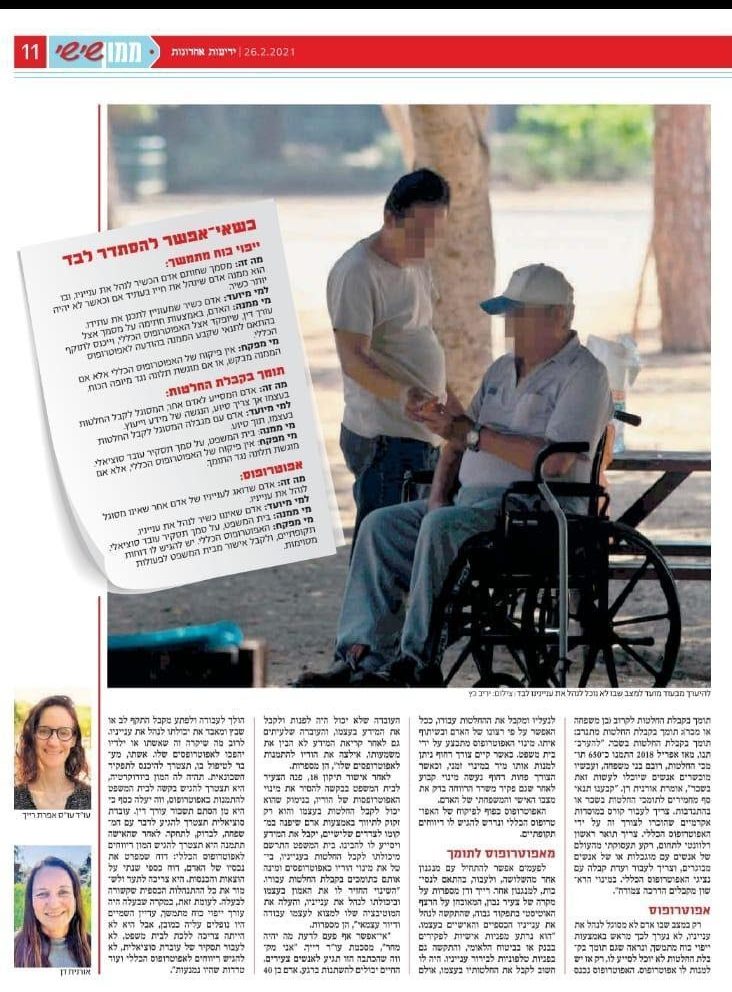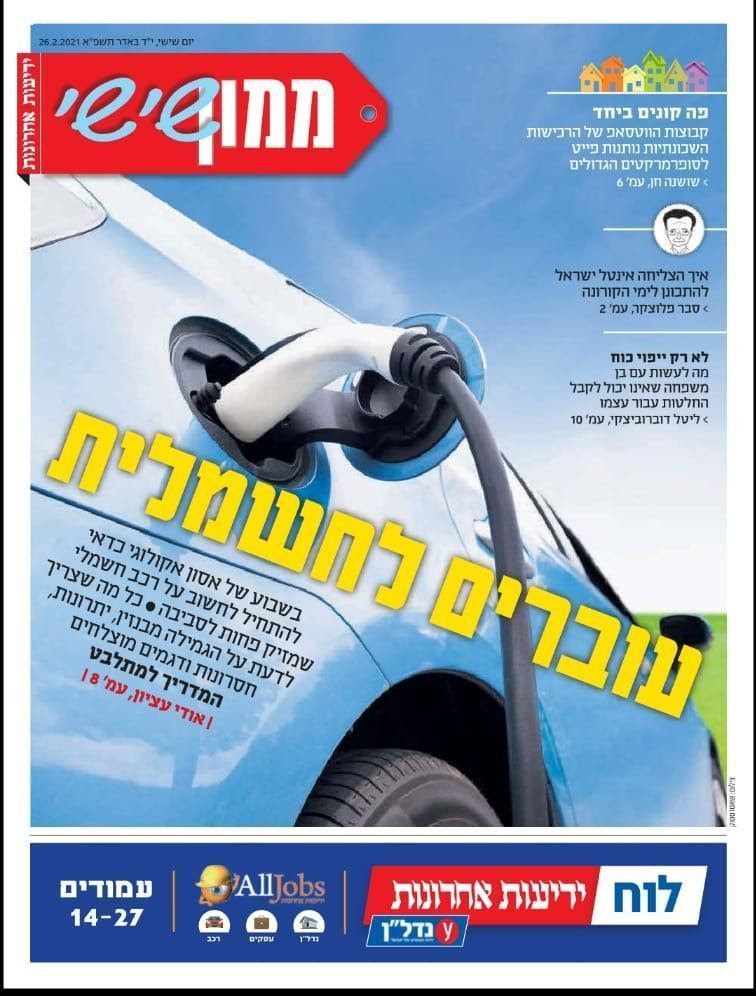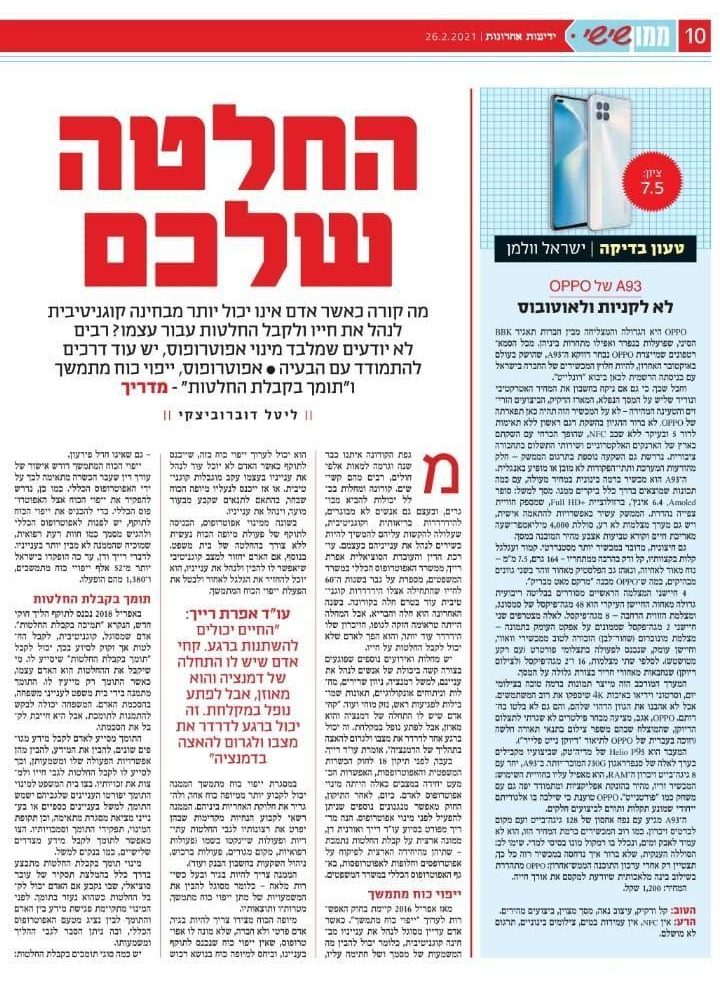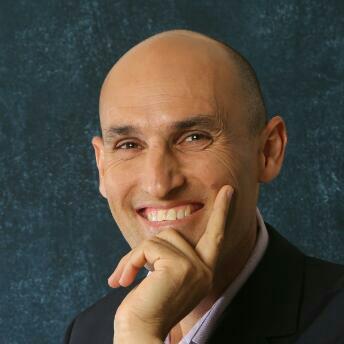 Case Studies
Case Studies
A young woman with a mental disability who had a legal guardian decided she wanted to begin to live independently. She contacted the program and explained that her main problem was managing her financial affairs. A volunteer with suitable skills was assigned to help – a businessman with years of experience in various financial fields was selected as her supporter. Since then, he has been supporting her in managing her finances and several other areas. She is currently making her way in the world as a young independent woman determining her own fate.



 Program Staff
Program Staff
Alon Brachfeld earned a bachelor’s degree in Law and Computer Science from the Hebrew University, a Master’s degree in Philosophy from Ben Gurion University, and a Master’s law degree (LL.M with honors) from the College of Management Academic Studies, in the Human Rights Program.
He is a social activist and researcher in the field of disabilities as well as an attorney, mediator, and coordinator of Olim LeDerech (Family Group Conferences).
Susan Nirens earned a bachelor’s degree in Social Work from the Hebrew University. For the past three decades, she has been developing programs for disabled youth. She is also one of the founders and managers of the organizations, Kishorit, House of Wheels-Galilee and Kivunim. Each of these organizations has found a way to create a new reality for people with disabilities in Israel.
For more information, please contact:
Elon Brachfeld, National Coordinator and Coordinator of the Center: elon-dm@mosaica.org.il
Susan Nirens, Program Coordinator: susan-dm@mosaica.org.il

